- About Archives
- About SAA
- Careers
- Education
- Publications
- Advocacy
- Membership
Top two vote getters elected for 2017-2020 term. Third vote getter elected for 2017-2018 term.
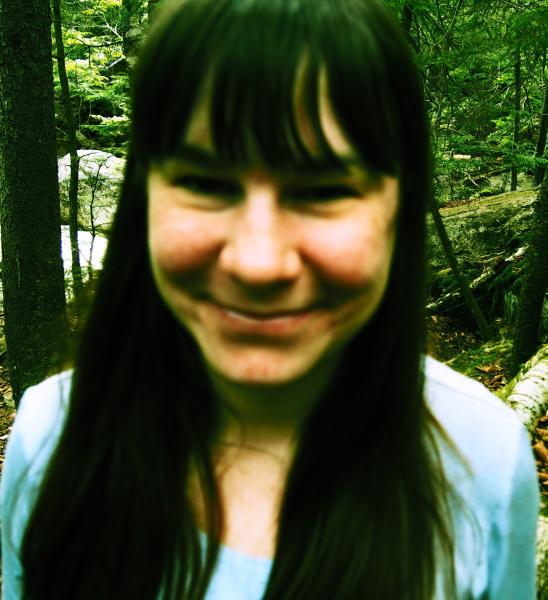
Jessica is the Curator of Digital Collections at Harvard Law School. Her responsibilities include born-digital collection development and perpetually establishing a program for processing, discovery, and access of this material. She’s enjoyed former positions as Assistant Archivist for McDonald’s Corporation and a variety of grant and project work at the College of Charleston and its Avery Research Center for African American History and Culture. She contributes to her Harvard Library community as a member of the Digital Forensics Working Group and co-founded the Harvard Library Social Justice Discussion Group. Since 2016 she’s been one of many leaders laboring to establish a Born-Digital Access Bootcamp and community of practice for archivists. In the past she’s served on the steering committee and then as Vice Chair of the Chicago Area Archivists.
I’m not unique in this community when it comes to my current professional passions: moving forward on addressing issues of discovery and access of born-digital records, doing so with an eye to social justice and ethical practices as a standard, and obsessively documenting along the way. I’m inspired by SAA ERS members’ involvement in proposing to define levels of access for electronic records, prolifically sharing practices via bloggERS, forming ad-hoc communities that produce invaluable resources such as the recent Archivists’ Guide to Kryoflux and Born-Digital Access Bootcamp, and so many other initiatives. We are closing in on establishing standards for ingesting, processing, and preserving born-digital records, and are now able to focus some attention on lesser-understood issues around discovery and access. With the myriad opportunities we have to enhance or establish new collaborative documentation projects, and a sizeable contingent of the community interested in centering our daily practices around social justice, I’m inspired to serve as a leader of ERS in building upon the work of our already-engaged membership.
Thank you!
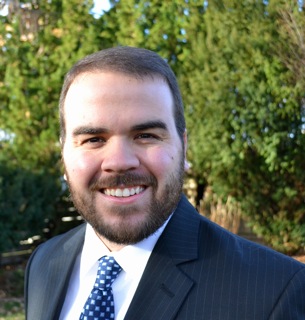
As the Digital Archivist for Special Collections and Archives, I am developing a digital preservation plan for our department. I am also integrating existing MS Access data into an online, MySQL and PHP driven search page in a WordPress environment. Building solutions for web-archiving and email are also at the forefront of my duties at the moment. The long term vision of my position is to champion electronic records management for Special Collections and Archives.
I am seeking your vote to the steering committee for the Electronic Records Section because I am fully committed to the growth and success of our work in electronic records. I am eager to get more involved in this section, and I feel I can contribute to the conversations surrounding digital archives. As a Steering Committee member I will value everybody's contribution to our efforts and I will focus my efforts on maintaining a civil, friendly, and productive SAA Section.
I absolutely enjoy committee work. I just recently completed my duties on a local arrangements committee for our regional joint-conference of the Northwest Archivists, and Conference of Intermountain Archivists. Here is our program for that conference. I'm also well versed in remote group work for my MLIS program, as it is entirely online, and involves many team projects. Outside of libraries and archives, I have also served on the City of Boise History Committee, and I have worked extensively Boise City Neighborhood Associations on various city neighborhood grants and community projects.
I can offer the ERS Steering Committee my dedication, as a thoughtful and hardworking teammate. As a Westerner from a relatively small archive in the Inter-mountain/Northwest, I can also offer a new perspective on some issues institutions in my region face. Conversely, my involvement in the ERS will greatly benefit Southwest Idaho's very small network of archivists, that need more experience in electronic records. I look forward to learning even more about electronic records from this section, and helping the group in any way I can.
Thank you for your vote!
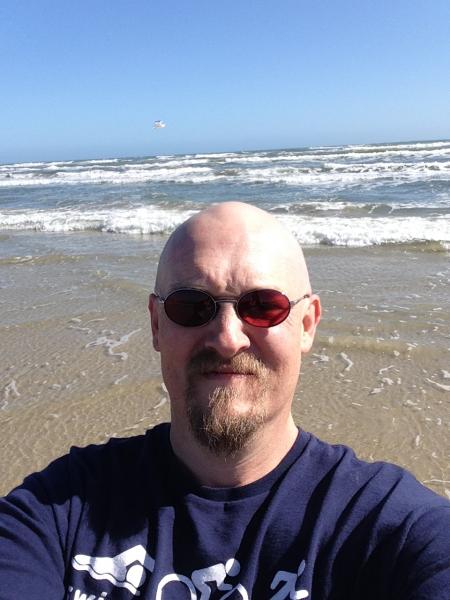
Mark is the senior electronic records specialist with the Texas State Library and Archives Commission (TSLAC) and has over 17 years of experience in electronic records management and digital preservation. He is helping build the Texas Digital Archive, a data archive to preserve and make accessible the electronic records of state government. Prior to his work in TX, Mark was an electronic records archivist with the Kentucky Department for Libraries and Archives for 13 years. Mark is also a member of the SAA education faculty, being the lead instructor for the "Appraisal of Digital Records" workshop and the "Basic Electronic Records" and "Electronic Records: Next Steps" webinars. Mark is a past chair of the Electronic Records and Government Records sections of SAA. He now lives in Austin, TX, with his two children.
The world of electronic records is unique in our profession in the way it is constantly shifting and evolving, that is what makes it fun and challenging. I offer my experience to the ERS again (I am past chair of the Electronic Section and have served on the steering committee before) because I feel it is a tremendous forum for electronic records and digital preservation practitioners to connect and network with each other and share ideas. Like the rest of SAA, the ERS needs to evolve and shift to stay relevant to members and continue to be one of the leading sections in SAA. I want to be involved in that process and help give back to others in our electronic records field.
Thank you!
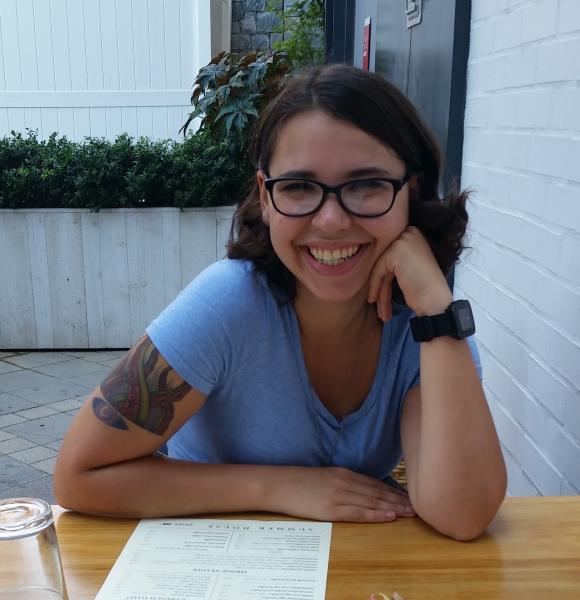
Alice is the Digital Accessioning Archivist for Yale Special Collections at Beinecke Rare Book & Manuscript Library. Her main focus is implementing a centralized accessioning service for born digital media from across Yale's Special Collections. She is currently the assistant team leader for the ERS Blog and is a member of SAA's Digital Archives Specialist Subcommittee of the Committee on Education. She holds an MLIS with a specialization in digital curation from University of Maryland. Previously she worked for the John F. Kennedy Presidential Library as a National Digital Stewardship Resident where she assessed and made recommendations for the preservation of their digital library.
The Electronic Records Section has been an invaluable resource for me since I started working in digital archives. The stories told on the blog, discussions on the listserv, and topics brought up at the annual meetings have all helped to shape my understanding of how digital fits into the larger picture of archives. I would love to play a role in facilitating conversations within ERS around workflows and shared documentation. In my current position I relied on existing public documentation of digital accessioning workflows to guide my work. The gracious transparency of the institutions that shared these documents kept me from re-inventing an already well documented wheel. I've tried to 'pay it forward' by making the documentation for the Digital Accessioning Service at Yale widely available and even promote our documentation page where possible. I think ERS is in the ideal position to encourage others to make their documentation public and provide a platform for sharing and asking for others to share. I'm excited at the prospect of leading these conversations and supporting the ongoing education and work of archivists managing digital objects.
Thank you!
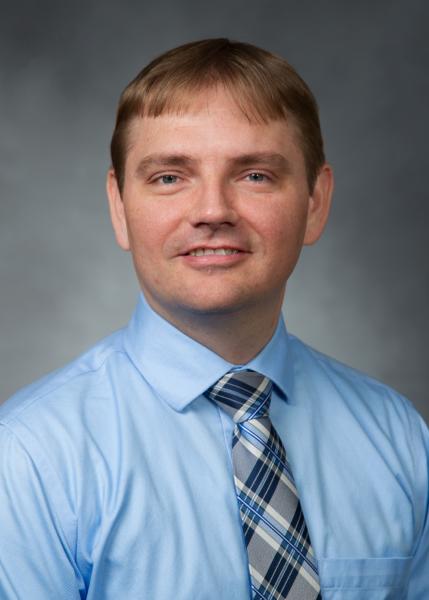
Dainan is the curator of the 21st Century Mormon & Western Manuscripts collection at Brigham Young University’s L. Tom Perry Special Collections with responsibilities for documenting the current century’s history of the LDS church, Utah, and the West. He has previously worked at the University of Hawaii at Manoa and the Hawaii State Archives. He obtained a MLISc in 2007 and M.Ed in Learning Design and Technology in 2016 from the University of Hawaii at Manoa. While in Hawaii, he served as a board member of the Association of Hawaii Archivists from 2009‐2013, taking on the role of President‐Elect/President in 2012‐2013. He is a certified archivist with the Academy of Certified Archivists and obtained the Digital Archives Specialist certificate with the Society of American Archivists.
As the 21st Century manuscript curator at BYU, I work extensively with electronic records and have developed a passion for preserving and making electronic records accessible. I am interested in serving on the steering committee to better rub elbows with all of you who work closely with these materials and share ideas and efforts across institutions. Archives have come a long way in ensuring perpetual access to these fragile records yet there is more to do. I look forward to assisting as we work together to find more efficient ways to fulfill this work.
Thank you!
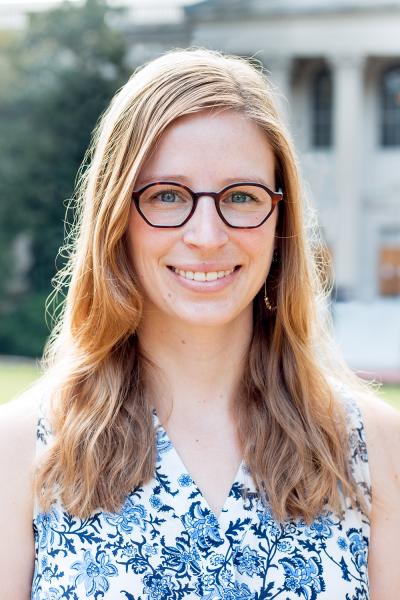
Jessica works as the Assistant University Archivist for Digital Records and Records Management at the University of North Carolina Chapel Hill Libraries. Among other responsibilities, she strives to increase the Libraries’ capacity to effectively acquire, preserve and provide access to digital materials through management of workflows, knowledge sharing, and collaboration with colleagues across departments. Prior to joining the team at Carolina, Jessica worked as the Library Fellow for Digital Archives at the MIT Institute Archives and Special Collections. She earned a Master of Science in Information degree from the University of Michigan.
I regularly turn to the Electronic Records Section resources, particularly the blog, when I feel stuck in day-to-day challenges. I have benefited from the information shared about technology, but the posts about the organizational aspects of our work have by far been the most helpful. In my experience the successful management and preservation of digital collections overtime often relies more on people than it does on technology. A focus on tools gets us part of the way, but understanding organizational context is also critically important.
If elected as a member of the steering committee, I will work to sustain the ERS tradition of information sharing from folks across the field through the blog and email list. I will also look for new ways to facilitate conversation about the human side of what we do. This might involve further exploration of topics such as centralized vs. distributed staffing models, articulation of roles and responsibilities, coordinating roles and training colleagues, and creating a shared understanding among colleagues of the labor and expertise involved in digital preservation. I think together the members of the Electronic Records Section can work through these types of issues to not only improve our technical workflows, but also better understand and communicate about the roles we play at our respective institutions.